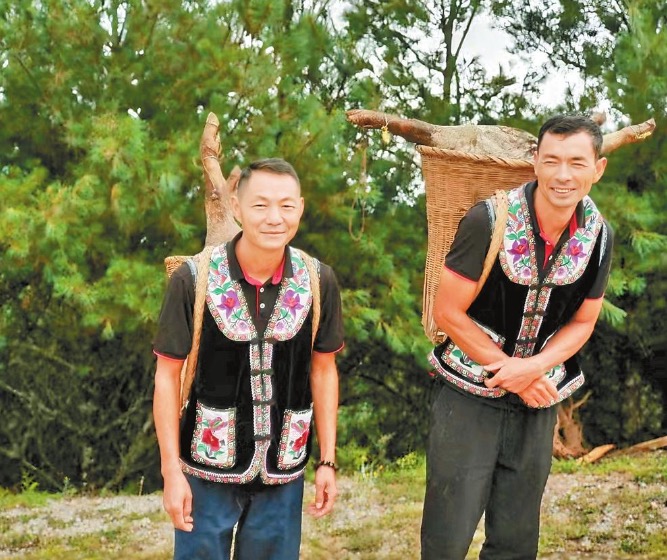Yunnan hams symbolize provincial culinary culture
After the Minor Cold in winter, villagers in Malutang township in Luquan Yi and Miao autonomous county of Kunming, capital of Yunnan province, are busy hanging cured and dehydrated Yuntui ham into caves. After two to three years of natural fermentation and cellar storage, these hams exhibit a distinct reddish-brown color with a firm and glossy texture.

Yuntui ham in the caves (Photo by Yunnan Daily)
The delicious ham can be used in various dishes such as cheese cakes, stewed chicken, and steamed fish, offering delightful flavors and abundant nutrition. Hams with longer fermentation can even be sliced and eaten raw.

Villagers carry the ham to the caves. (Photo by Yunnan Daily)
Yuntui ham is a symbol of Yunnan's culinary culture, intertwined with centuries-old salt-making techniques and the ancient Tea Horse Road. Not only is Yunnan ham an intangible cultural heritage of the province, it is also one of the earliest local specialties to enter the international market.
Hams produced in places like Nodeng in Dali, Xuanwei in Qujing, Sanchuan in Lijiang and Laowo in Nujiang, each have their own characteristics. Combining culture, tourism with industry, Yunnan ham has grown into a major industry with an annual output of over 10 billion yuan.
Source: Yunnan Daily; trans-editing by Wang Yunya








